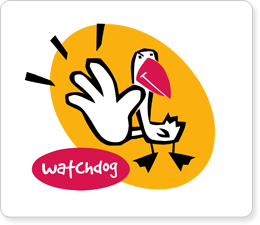NZ interloper to commercialise UK internet blocking
|
|
By John Ozimek
Posted in Telecoms, 16th November 2009 11:14 GMT
Arguments over just how successful government attempts have been in keeping child porn off the internet may be little more than a storm in a teacup – but such discussions highlight a shift in the way indecent material may be blocked in future.
The story begins with a shocking claim from internet filtering company, Watchdog International, that "known illegal content is not blocked by 88 per cent of UK ISPs". Since the Home Office recently abandoned plans to bring filtering up from a claimed 98.6 per cent of connections to 100 per cent by passing a law that would make filtering mandatory, this is at first sight a staggering discrepancy.
|
| Read more... |
|
Small ISPs reject call to filter out child abuse sites
|
|
By Chris Williams
Posted in Telecoms, 25th February 2009 15:15 GMT
ISPs have rejected a call by childrens' charities to implement the government's approved blocklist for images of child sexual abuse, because the list does not stop anyone who wants to accessing such material.
On Monday a coalition including the NSPCC and Barnardo's sounded warnings that 700,000 homes could access websites hosting images of abuse because small ISPs do not filter their networks. The charities aimed to put pressure on the government to force them to implement the Internet Watch Foundation's blocklist, pointing out that in 2006 ministers said all providers should do so by the end of 2007.
Small ISPs have resisted filtering their networks for several years on economic and principle grounds. On Tuesday Malcolm Hutty, policy chief Linx, a peering cooperative used by many small ISPs, reiterated the objections. "Especially at the moment, it would mean spending a lot of money on something that simply does not work," he said. "The system is politically motivated."
|
| Read more... |
Austrian police crush vast child porn ring
|
|
13 March 2009 at 17h01
Vienna - Austrian police said on Friday they have smashed a vast Internet child porn ring involving nearly 1 000 people, some of them teachers.
With the help of their European colleagues, Austrian police were able to identify 935 suspects, of whom 189 were proved to have exchanged pornographic material involving minors, they said in a statement.
Investigations against a further 97 were still underway. Among the suspects were a number of teachers. And some were already known to police. In raids of the suspects' houses, police had also found other illicit material, drugs and illegal weapons.
Investigators had been able to identify 16 of the children in the films and photographs. They were aged between nine and 12 and came from the United States and Paraguay, police said. - Sapa-AFP
So you think child sexual abuse is not a big problem? Thousands of man hours go into global investigations that lead up to arrests such as the recent bust of 22 men in Australia. But it doesn't end there - this was part of a global initiative involving much larger numbers.
From this bust over 500,000 images of child abuse and 15,000 videos of children being abused were seized. This alone tells us something of the size of paedophile collections of which behind every picture is a child being abused.
|
| Read more... |
ECPAT New Zealand Formally Launch Internet Hotline
|
Watchdog Filtering Expert Opinion in UK Press
|
net.wars: The 5 percent solution
by
This e-mail address is being protected from spambots. You need JavaScript enabled to view it
| posted on 07 August 2009
So much has been said about Australia's Internet filtering this year that nearby New Zealand's project has mostly escaped notice. The plan is to implement filtering sometime in the next couple of months. Unlike the UK, where the blocklist is maintained by the Internet Watch Foundation under a voluntary arrangement, in New Zealand the list is being administered by the Department of Internal Affairs. Wendy M Grossman It turns out that the technology New Zealand is putting in place is coming into use in the UK, courtesy of Watchdog International, which recently signed a deal to supply it to Talk Internet.
Watchdog's managing director, Peter Mancer, says the idea for the technical implementation comes from Sweden. "I was impressed at the cooperation of police and NGOs," he said of the work he observed there, "but I don't like DNS poisoning. It's not effective enough and it's too broad a brush, and my ten-year-old can bypass it by putting someone else's DNS servers in the browser settings. But it's easy to employ from the ISP's point of view." DNS poisoning – or rather, blocking selected domains – is, of course, what is implemented in the UK through BT's Cleanfeed.
|
| Read more... |
|
|
More Articles...
- NZ Web filter will focus solely on child sex abuse images
- New Zealand bolts net filtering regime into place Shows Oz - and us - how it's done
- Auckland's Watchdog International Helps filter Aussie Internet
- Pressure for ISPs to Block CSAI Mounts in the UK
|
<< Start < Prev 1 2 3 Next > End >>
|
| Page 1 of 3 |
